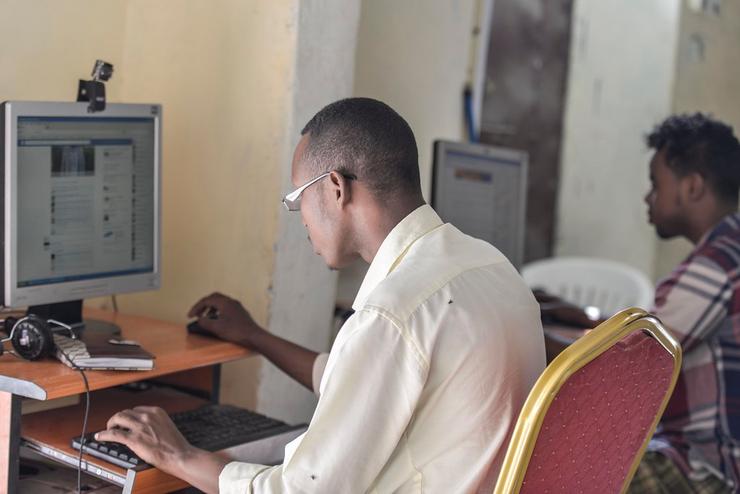The News
Cybercrime incidents make up a large share of overall crime in Africa, the latest threat assessment by Interpol found, with the global policing body calling for urgent action to close vulnerabilities as the continent’s digital transformation accelerates.
In West Africa, 60% of respondents to an Interpol survey viewed cybercrime as constituting more than 30% of all crime in the region, while more than 40% in East Africa reported feeling the same way. More than two-thirds of Interpol’s 54 African member countries said cyber-enabled crimes were a medium-to-high share of all crime in 2024.
Phishing is the most frequently reported form of cybercrime in Africa, comprising a third of all such incidents, while ransomware attacks, business email compromise, and the provision of malware-as-a-service are some of the other leading threats, according to the report.
A “surge” in romance scams in 2024 particularly in Benin, Côte d’Ivoire, Ghana, and Nigeria has made it one of Africa’s top online scams, Interpol said. And, citing a cyberthreat index by the International Telecommunication Union, it said Ethiopia, Kenya, and Nigeria were among the most frequently targeted countries globally by cybercriminals in 2024.
In this article:
Know More
Interpol surveyed law enforcement agencies in 43 African countries, and also used data from private cybersecurity companies and open source information for its report.
Cybercrime has resulted in high financial costs in some of Africa’s biggest economies in recent years. A notable rise in cybercrime in South Africa in 2023 led to more than $180 million in losses for local banks and their customers, the South African Banking Risk Information Centre said. Banking app fraud was the main source of attacks, it said.
Attacks are becoming more sophisticated, especially with the strategic use of artificial intelligence and social media manipulation by criminals, Interpol said. The trend is helped by the widespread increase in digital services.
Incidences of banking information theft online have reduced across Africa with improved law enforcement measures, but they also remain serious cyberthreats, the report said. Many African countries “still lack adequate cybersecurity measures” to counter the rise in attacks. Less than a third of countries have databases for cyberthreat intelligence or systems for reporting incidents, for example.
Reforming cybercrime laws, increasing public awareness, and strengthening international cooperation are all necessary for Africa to combat cybercrime. But the backbone to an effective response would be “sustained investment in national capacity,” the report said.
Botswana, Namibia, and South Africa have advanced their cybersecurity architecture through investments in cybersecurity awareness, but even these countries must beware as the use of deepfake video technology is testing the durability of their systems, Interpol said.
Step Back
About 320 million people in Africa now have access to mobile internet, a number that will grow to half a billion by 2030. More than half of the continent’s 1 billion mobile SIM connections are in smartphones, according to the GSMA, a mobile industry body. While these trends power digital inclusion, they have increased the targeting of mobile platforms by cybercriminals, especially in countries where mobile banking services are growing, Interpol said.
The View From South Africa
Cybersecurity spending in South Africa is below 0.25% of gross domestic product annually, “a concern given the high cost of data breaches,” the South African Reserve Bank said in a report this month on the country’s financial stability.
It said that while the cost of breaches fell slightly to $2.78 million last year, the country was still vulnerable to cybercrime, with electricity supply challenges and the lack of robust security protocols on backup power systems underscoring those vulnerabilities.
Notable
- Deepfake videos used to impersonate people increased sevenfold in Africa in the second half of 2024, according to data from Lagos-based digital identity verification company Smile ID.


